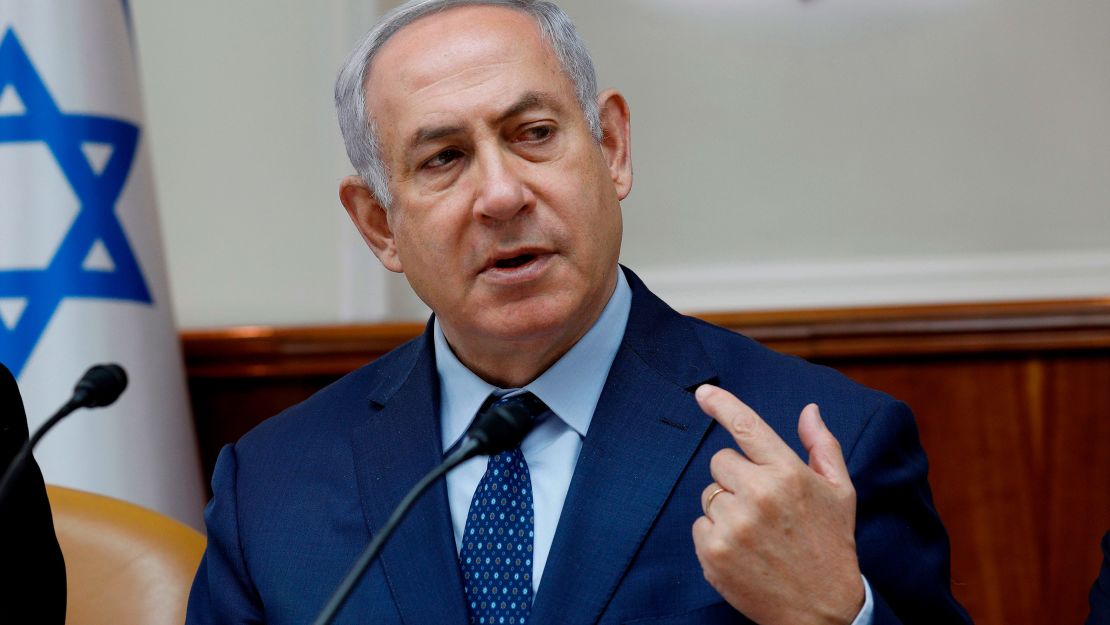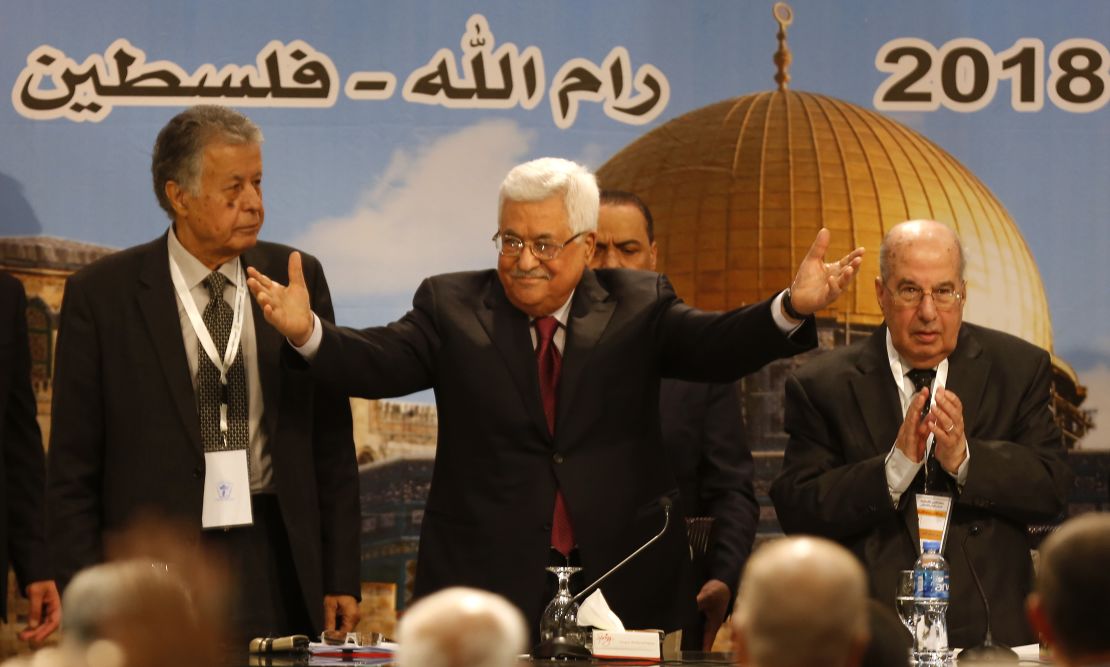It was not only Israel’s leader making an important presentation on Monday night.
While Benjamin Netanyahu was in Tel Aviv, trying to make a fresh case for the destruction of the Iran nuclear deal, Palestinian Authority President Mahmoud Abbas was in Ramallah, trying to make a fresh case for the continuation of his own leadership.
As the dust settles on the Netanyahu performance, so attention in the region, and elsewhere, is turning to that of Abbas, and a speech being widely condemned as anti-Semitic.
Abbas told Palestinian leaders the Holocaust was driven not by anti-Semitism among Germans, but by frustration over the financial activities of European Jews.
“Jews who moved to east and west Europe were facing a massacre every 10 or 15 years from a different country,” Abbas told his audience. “The hatred towards the Jews is not because of their religion but because of their social roles related to taxes and banks.”
Israeli Prime Minister Benjamin Netanyahu lashed out at the remarks on Wednesday saying, “With utmost ignorance and brazen gall, he claimed that European Jews were persecuted and murdered not because they were Jews but because they gave loans with interest.” Abbas had, Netanyahu added, “again recited the most contemptible anti-Semitic canards.”

Citing books written by what he described as Zionist Jewish authors, Abbas also re-aired a discredited theory that Ashkenazi Jews hail from Khazaria, an empire located in Eastern Europe, rather than the biblical Holy Land.
“Khazar was a kingdom with no religion, then they became Jews and left the kingdom and spread all over Europe,” Abbas told the crowd. “And those are Ashkenazi Jews, which means they are not Semitic and have no relation to Semitism and have nothing to do with the prophets Abraham or Jacob.”
Historians and academics have debunked what they call the Khazar myth claims.
Representatives of the US government also quickly pounced on the speech. The US Ambassador to Israel, David Friedman, said Abbas had “reached a new low,” adding “to all those who think Israel is the reason that we don’t have peace, think again.”
President Donald Trump’s special envoy to the Middle East, Jason Greenblatt, called for Abbas’ comments to be unconditionally condemned. “They are very unfortunate, very distressing and terribly disheartening. Peace cannot be built on this kind of foundation.”
Even groups and individuals previously supportive of Abbas were critical. Mehdi Hasan, a columnist and adjunct professor at Georgetown University, called Abbas’ claims “dumb, offensive, ahistorical, and, yes, deeply, deeply anti-Semitic.”
“Well done Abbas. You’ve lost J Street,” tweeted analyst Neri Zilber drily, a reference to a Jewish-American organization which has voiced strong support for Palestinian statehood.
On its website, J Street posted, “With diatribes like this, President Abbas only undermines the legitimate aspirations and concerns of the Palestinian people, and distracts from the need for international action to help alleviate the crisis in Gaza and advance the two-state solution.”
The European Union described Abbas’ remarks as “unacceptable.”
Former US Secretary of State John Kerry tweeted: “These comments are wrong, ugly, and unacceptable – anywhere from anyone – but particularly from anyone who says he wants to be a peacemaker. No excuses for antisemitism: words to be condemned, not explained away.”
The UN’s chief Mideast envoy, Nickolay Mladenov, said Abbas had repeated “some of the most contemptuous anti-Semitic slurs” that did not “serve the interests of the Palestinian people, or of peace in the Middle East.”

Abbas was speaking at the opening of the Palestinian National Council meeting in Ramallah, the first time such a meeting has been convened in decades. The 108-minute speech touched on a range of issues that also included praising the accomplishments of the Palestinian Authority, reconciliation with Hamas, the peace processes and the Trump Administration.
While Abbas lamented on the past struggles of the peace process, he did not discuss any plan to advance negotiations. That may be even more difficult after his latest comments.
“He’s blown up bridges for his own personal participation in the efforts to achieve Palestinian political aspirations,” former US Ambassador to Israel Dan Shapiro told CNN. “His time as a Palestinian leader who can be considered a possible partner for any kind of peace negotiation is over.”
Efforts to kick-start a peace process already looked problematic after President Trump recognized Jerusalem as the capital of Israel last December and ordered the embassy to be moved there later this month. In December the United Nations General Assembly voted overwhelmingly in favor of a nonbinding resolution condemning the move.
In the aftermath, Abbas severed high-level ties with the Americans and rejected them as partners for peace.
“We were surprised that the Trump deal was a slap and an end to peace,” Abbas told the crowd in Ramallah. “We will not accept America as a mediator and we will not accept what it wants to offer in the middle of next month.”
President Trump is now expected to present his peace plan sometime in the weeks after the embassy moves on May 14. Abbas may have dealt himself a self-inflicted wound at a time when Abbas needs support of the international community.
Ghassan Al Khatib, a former Palestinian minister and political science professor at Birzeit University in the West Bank, believes the comments will alienate him to the very people he needs to work with.
“The part of the speech was completely unnecessary because it brought a lot of attacks,” Al Khatib told CNN. “He already has difficulties with Israel and the United States on issues that the rest of the world supports him on, like the new US position on Jerusalem, and it could cost him.”
CNN asked Abbas’ office for comment on the claims of anti-Semitism, but has not received a response.


